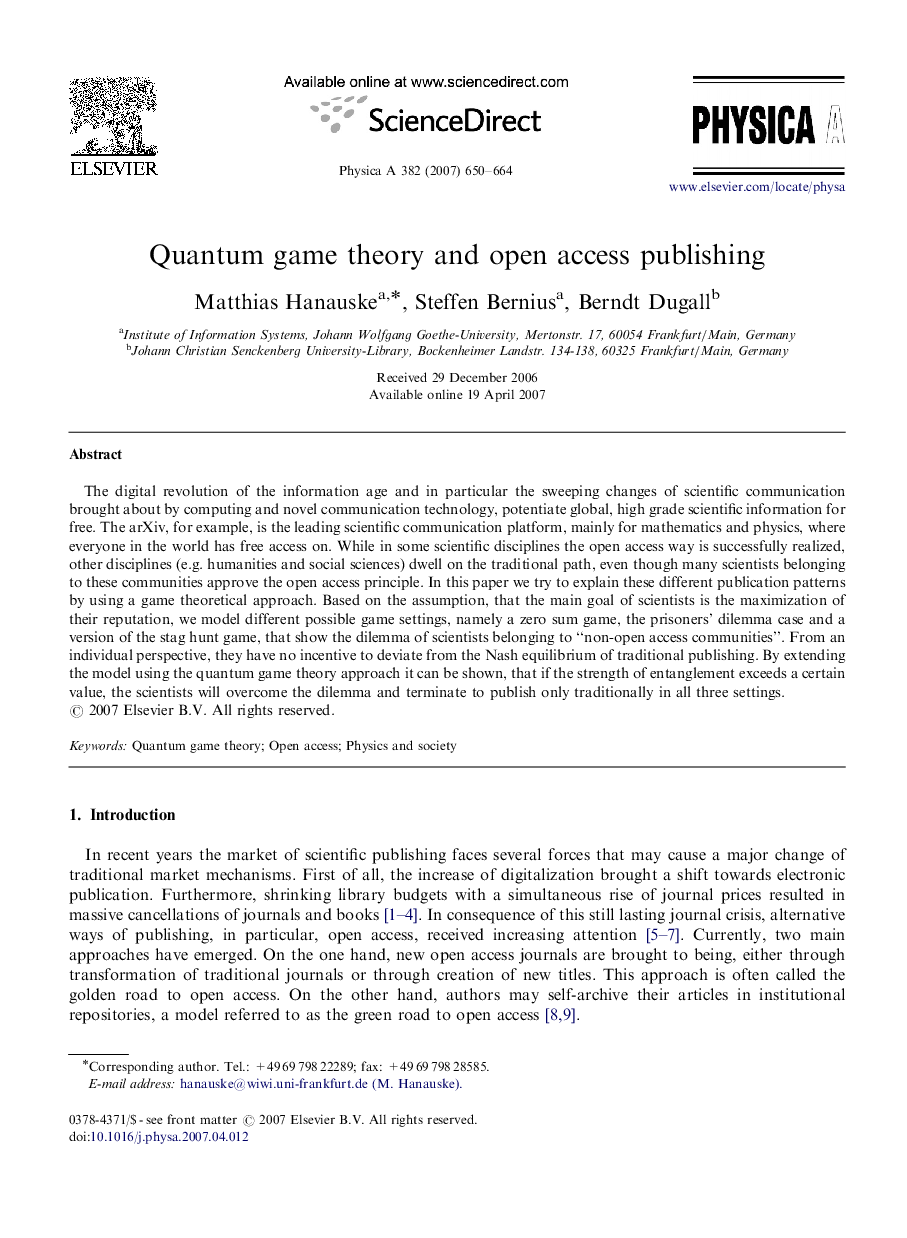| Article ID | Journal | Published Year | Pages | File Type |
|---|---|---|---|---|
| 976725 | Physica A: Statistical Mechanics and its Applications | 2007 | 15 Pages |
The digital revolution of the information age and in particular the sweeping changes of scientific communication brought about by computing and novel communication technology, potentiate global, high grade scientific information for free. The arXiv, for example, is the leading scientific communication platform, mainly for mathematics and physics, where everyone in the world has free access on. While in some scientific disciplines the open access way is successfully realized, other disciplines (e.g. humanities and social sciences) dwell on the traditional path, even though many scientists belonging to these communities approve the open access principle. In this paper we try to explain these different publication patterns by using a game theoretical approach. Based on the assumption, that the main goal of scientists is the maximization of their reputation, we model different possible game settings, namely a zero sum game, the prisoners’ dilemma case and a version of the stag hunt game, that show the dilemma of scientists belonging to “non-open access communities”. From an individual perspective, they have no incentive to deviate from the Nash equilibrium of traditional publishing. By extending the model using the quantum game theory approach it can be shown, that if the strength of entanglement exceeds a certain value, the scientists will overcome the dilemma and terminate to publish only traditionally in all three settings.
